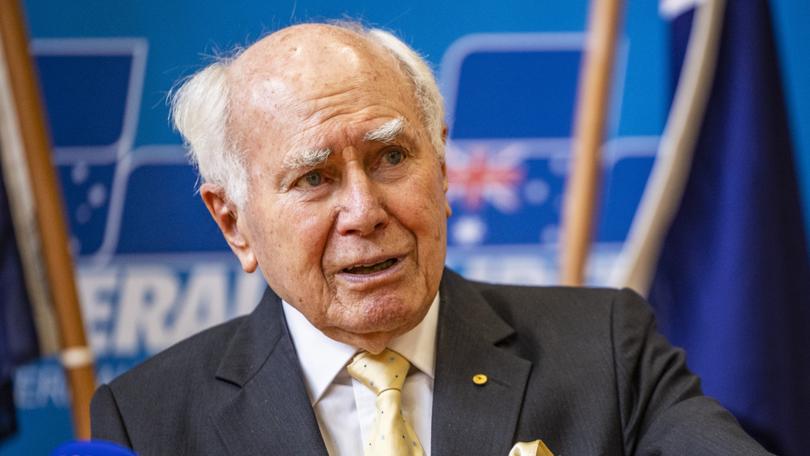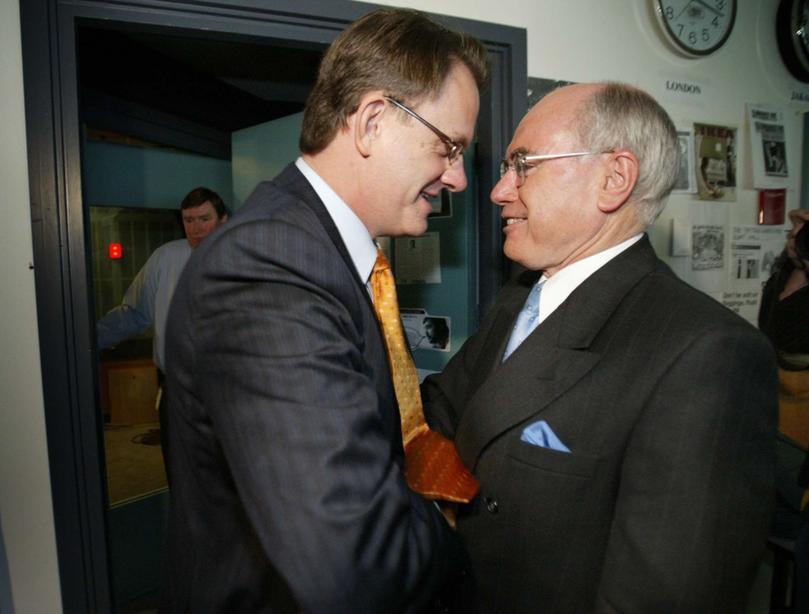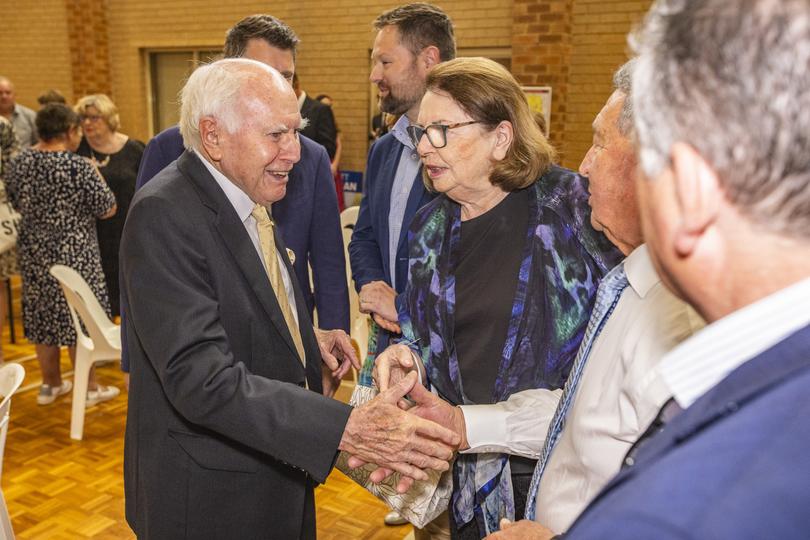Former Australian Prime Minister John Howard says a minority government is not inevitable
The former prime minister says while people are less rusted-on in their voting habits, that is not a problem but rather a political reality today’s leaders need to deal with.

John Howard does not believe minority governments are inevitable despite the long-term drift of voters away from major parties.
The former prime minister says while people are less rusted-on in their voting habits, that is not a problem but rather a political reality today’s leaders need to deal with.
In an interview ahead of the release of the 2004 cabinet papers, Mr Howard reflected on his election victory in a “remarkable year”, when he won a rare majority in the Senate as well as the lower house.
Sign up to The Nightly's newsletters.
Get the first look at the digital newspaper, curated daily stories and breaking headlines delivered to your inbox.
By continuing you agree to our Terms and Privacy Policy.Anthony Albanese will take Australia to an election by May 17, seeking a second term.
Labor’s two-party preferred vote has slid steadily in the polls over the past year and most published polling suggests an election held now would result in a hung parliament.
At the last election, Labor garnered 32.6 per cent of the primary vote and the Coalition 35.7 per cent.
Neither party’s primary vote has been above 40 per cent since before the election in Newspoll surveys.

Mr Howard said it was clear the old 40-40-20 rule — where the major parties received about 40 per cent of the vote each — had shifted more towards a breakdown of the electorate into thirds.
“It’s just that people are less rusted on in their voting habits . . . somewhat less rusted on,” he said. “Nothing is a problem if it is the expression of the will of the people.”
But he didn’t believe this meant minority governments would be the norm going forwards in Australia.
“Nothing is inevitable in politics unless you don’t believe in democracy, and you have a situation where people don’t think one side wins and the other side loses,” he said.
Mr Albanese has repeatedly insisted he is only campaigning for a majority government.
Both he and Opposition Leader Peter Dutton have warned voters off a hung parliament in which the party that forms government would have to negotiate its agenda through both houses.
Labor also wants to focus on getting a stronger position in the Senate, after finding many of its plans stymied or delayed.
On housing, the Greens twice held up legislation — the second time for more than a year — despite Labor arguing it implemented what was in the minor party’s election platform.
George Megalogenis argued in his recent Quarterly Essay that Mr Howard was the last beneficiary of the old system with the 40-40-20 split and “in which the balance-of-power party in the Senate practised self-restraint”.

Mr Howard said having control of the Senate had primarily enabled his government to pass its industrial relations agenda, known as WorkChoices.
It was subsequently the centre of a strident union campaign ahead of the 2007 election, but Mr Howard also attributed his loss then to people having “got a bit tired of us”.
Whoever wins the imminent federal election will have to deal with a turbulent global environment including Donald Trump’s return as US president.
Big business is calling for an overhaul of research and development incentives to keep Australia competitive in the face of Mr Trump’s planned cuts to corporate taxes.
The Business Council of Australia wants the $150 million cap on R&D expenditure scrapped or lifted to $250m, saying it would lead to a “flurry of Aussie innovation” and make sure jobs and investment stays onshore.
“The private sector wants to do more Australian R&D, but the policy settings are holding back investment that could transform local products, creating jobs and driving economic growth,” chief executive Bran Black said.
Tesla chair Robyn Denholm is leading a review of R&D for the government but the report isn’t due until the end of 2025, which Mr Black said was not fast enough.
Business and university spending on R&D has grown in dollar terms since about 2016, but it has been falling as a proportion of GDP for more than a decade.
Mr Howard said when it came to Mr Trump, there was little to be gained by debating ahead of time how to react.
Reflecting on the incoming president’s pledge to impose tariffs of up to 20 per cent on imports to the US, he urged everybody to “just relax and see what he does”.
“He made many statements when he probably himself didn’t think he was going to win, and we just should react to what is given us, not what might be given us in some set of circumstances in the future,” he said.

